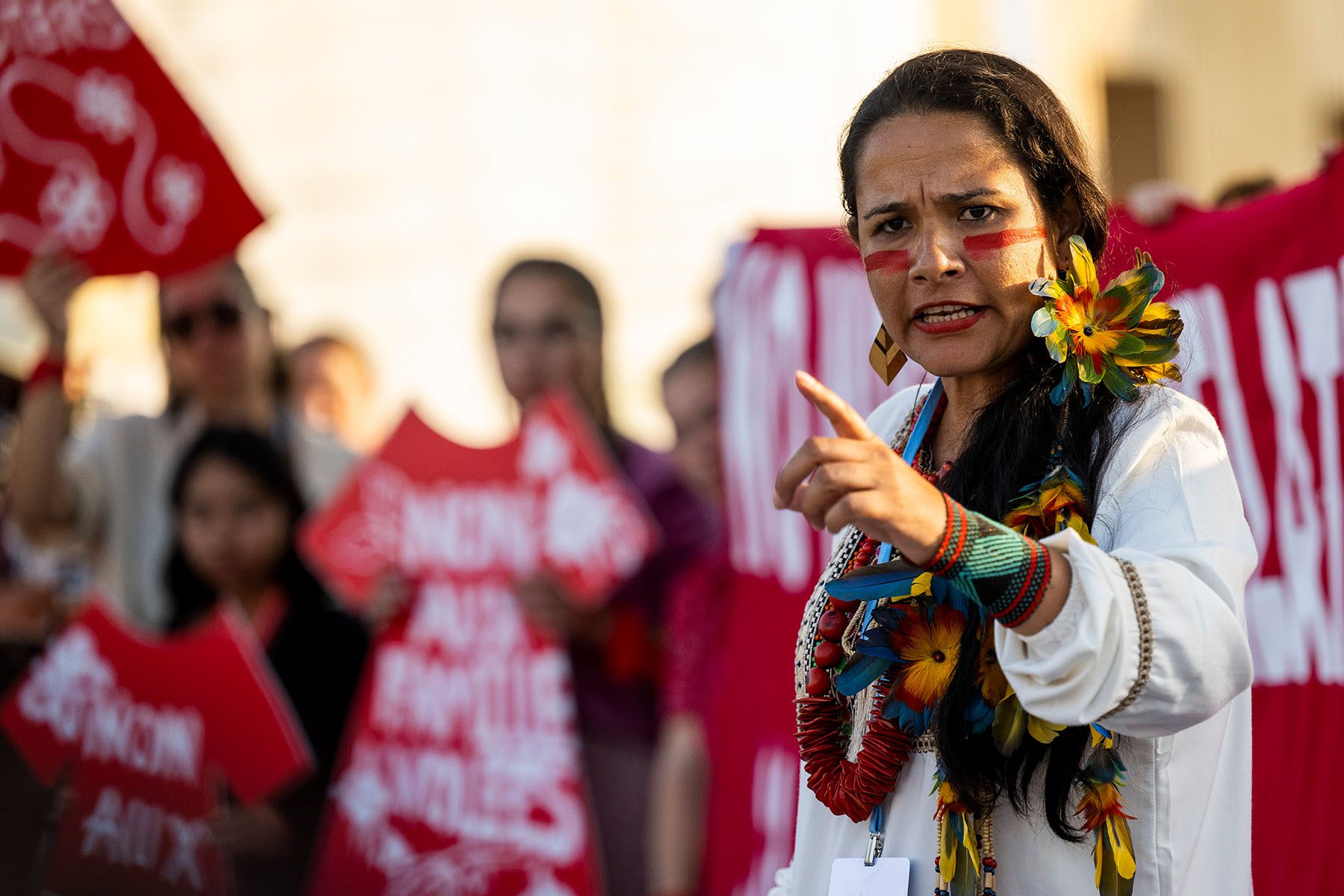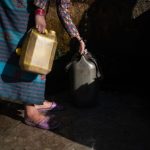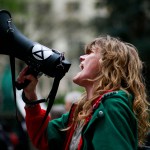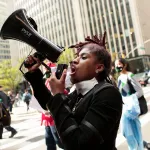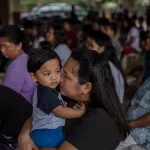Women are historically underrepresented at the United Nations’ global conference on climate change, and this year’s gathering, in Egypt, is no exception. But gender rights groups have worked to ensure that women — who are disproportionately impacted by climate change — aren’t left out of key decision-making spaces.
For the last week, delegations of government officials, civil society organizations and activists from around the world have convened in Sharm el-Sheik, Egypt for the United Nations’ annual Conference of Parties, known better as COP 27.
The aim of the annual conference is to create a plan to curb the warming of the planet through reducing carbon emissions and to lessen the harms already caused by climate change.
That matters particularly to women because they are disproportionately impacted by climate change. They are overwhelmingly displaced by climate disasters and are over 14 times more likely to be killed by climate-linked disasters, according to the UN Human Rights Commission. Despite that fact, they are often left out of these key decision-making spaces on the climate crisis.
Here are some of the key demands these gender justice groups are making as countries enter a second week of climate negotiations.
Women’s representation in climate leadership
A photo of the heads of state and government representatives attending COP27 — which was overwhelmingly men — went viral on social media at the start of the conference. According to the United Nations, of the 110 heads of state and government at the conference this year, only seven were women.
The lack of women was illustrative of a larger issue of representation at COP 27 and previous climate conferences. While the numbers aren’t in yet for this year’s conference, last year the percentage of women in party delegations, convoys comprised of government representatives sent from countries participating in COP, was around 37 percent, but over 70 percent of total speaking time by delegates was taken up by men, according to a report produced by the United Nations Foundation.
Civil organizations and official stakeholder groups like the Women and Gender Constituency work to ensure their voices are heard at COP by organizing side events and protests. As in other years, women, and especially women of color and from countries in the Global South are demanding that their voices be heard and amplified in climate negotiations.
“When we talk about representation it is about more than numbers; it is meaningful representation and inclusion,” said Nada Elbohi, an Egyptian feminist and youth advocate, in a press release. “It is bringing the priorities of African women and girls to the table.”
An emphasis on listening to African and Indigenous women was one of 27 demands made by the African Feminist Taskforce, ahead of the start of COP27.
Including women in climate negotiations, with an emphasis on Indigenous women in particular, is crucial to managing the climate crisis, say advocates. In many countries, Indigenous women are on the frontlines of the climate crisis already, and while Indigenous people make up just 6 percent of the global population, they protect 80 percent of the world’s biodiversity.
Gender justice organizations are also calling on countries to individually dedicate financing and resources to enhance the participation of women and LGBTQ+ people in climate action from a local to national level, through what’s known as the Gender Action Plan. This plan which was adopted at COP23, has several goals, including increasing representation of women in national delegations, increasing women’s role in energy development, and addressing women’s vulnerability to climate-linked disasters.
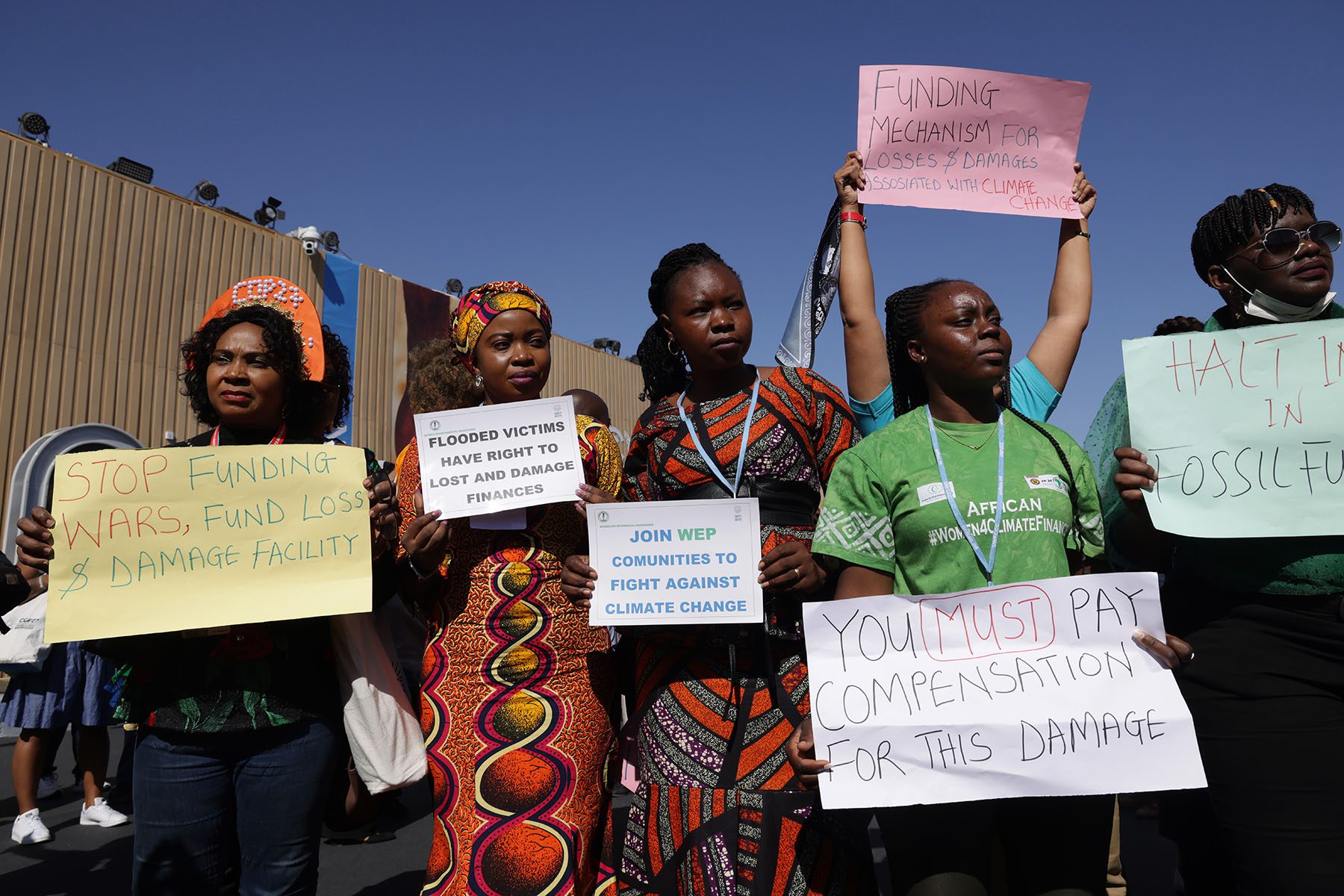
Protections for environmental and human rights defenders
The Women and Gender Constituency — which represents dozens of gender rights groups — held a protest at COP27 Friday, calling out the names of environmental and human rights defenders who have been killed defending their land and communities.
Mara Dolan, program manager with international women’s advocacy group the Women’s Environment and Development Organization (WEDO), said the action was organized to emphasize the real human cost of the climate crisis to COP27 delegations and negotiators.
“[It was to] remind folks that there is no climate justice without human rights,” she said. “It’s really a common misconception that women’s groups come to COP and care about getting the word ‘women’ on the agenda. … We come to COP really looking for a full recognition and realization of human rights in their entirety. And gender justice is one piece of that.”
In 2021, over 200 environmental and land defenders were murdered, according to Global Witness, a nonprofit that works to expose the role that extractive industries like mining and logging play in perpetrating human rights abuses. With a transition to electrification fueling an uptick in demand for minerals needed to produce things like electric cars, communities that live on the frontlines of extraction are still at risk.
“We have women leaders who we’ve lost because of their stances around protecting the land, protecting the community, protecting their communities and villages,” said Ozawa Bineshi Albert, a Yuchi and Anishinaabe woman who serves as the co-director of the Climate Justice Alliance- a coalition of U.S. based grassroots environmental justice organizations. “So we have to lift that up as a violation against the human rights of women, women in climate change work and environmental justice work … not to mention the threats that they experience because of the extractive industries that are contributing to the climate crisis.”
Loss and damages
This year, for the first time, a “loss and damage” fund was put on the COP27 agenda. The fund is a call for countries that have been the greatest contributors to the climate crisis to pay those countries that are suffering disproportionately from it.
“We want to see negotiations deliver a stand-alone financing facility for ‘loss and damage’ — the negative effects of climate change that people cannot cope with or adapt to,” said Sylvia Dorbor, a negotiator on behalf of Liberia in a press release. “In the last year alone, the African continent has seen major climate disasters, drought, floods and food insecurity. There is a historic and ongoing lack of support and compensation for the victims of climate change, who are disproportionately women.”
But for many activists, it’s about more than the climate crisis – it’s about addressing the ravages of colonialism and exploitation of the human and natural world, too. “We have arrived at this moment of crisis because of so much inequitable harm,” Dolan said.
“For us loss and damages is really about reparations,” Albert, from the Climate Justice Alliance said. “How are communities lifted up and being invested in after all the harms that they’ve been experiencing?”
